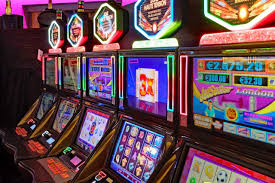
The Legal Status of Gambling in India
The legal landscape of gambling in India is a complex and fragmented issue due to the country’s federal structure and the influence of diverse cultural and religious values. Under Indian law, gambling is primarily governed by the Public Gambling Act of 1867, which was enacted during the British colonial era. This law prohibits operating or visiting gambling houses, including slot machines. However, the Act does not specifically address online gambling or the growing popularity of digital slot games. The Indian Constitution grants each state the power to regulate gambling, leading to a patchwork of state-specific laws that either allow or prohibit various forms of gambling, including slot machines.
State-Specific Regulations: A Fragmented Approach
The regulation of slot machines and gambling activities in India largely depends on the individual state laws, leading to significant differences in how these games are treated across the country. For instance, Goa and Sikkim are two states where gambling, including the operation of slot machines, is legalized and regulated. In Goa, casinos—both land-based and on riverboats—are legally permitted to operate slot machines. In contrast, many other states like Uttar Pradesh, Tamil Nadu, and Kerala have stricter laws that prohibit any form of gambling, including slot machines. This decentralized approach creates confusion, as players may be unaware of the specific laws that apply in their state, especially with the rise of online casinos offering virtual slot games.
The Rise of Online Slot Games and Legal Ambiguities
In recent years, the rise of online slot machines has added a layer of complexity to the legal landscape. While traditional, land-based casinos are heavily regulated in some states, the regulation of online gambling, including online slots, remains unclear. Many states, such as Maharashtra and Telangana, have passed laws prohibiting online gambling, including the use of slot machines on virtual platforms. However, the lack of a national regulatory framework for online gambling leaves many questions unanswered about the legality of online slot machines. The absence of clear guidelines has led to the proliferation of offshore online casinos catering to Indian players, operating in a legal grey area and often evading local scrutiny.
The Role of Skill Games vs. Chance-Based Gambling
A key aspect of the debate surrounding slot machine legality in India is the distinction between games of chance and games of skill. Indian courts have generally treated games of chance, like slots, as illegal, based on the premise that they are purely luck-based and cannot be influenced by skill. This has led to a widespread ban on activities like slot machines and roulette in states where gambling is prohibited. However, some regions have legalized games that are classified as skill-based, such as poker and rummy. This distinction is important because it influences how gambling is perceived and regulated in India, and calls for legal reforms have been made to consider the growing demand for games of chance like slot machines in a rapidly digitalizing world.
Future Outlook: Legal Reforms and the Potential for Change
The future of slot machines and gambling laws in India will likely be shaped by ongoing discussions about the regulation of online gambling and the potential for legal reforms. As digital platforms become increasingly accessible and popular, there is growing pressure on the government to regulate and tax online gambling, including slot machines, in a manner similar to how other forms of entertainment and digital products are managed. Public opinion is slowly evolving, with more players advocating for a legal and regulated gambling industry that can offer consumer protections and generate government revenue. As the legal and technological landscape continues to change, India may eventually implement a unified national framework to regulate slot machines and other gambling activities, providing clarity and structure to a rapidly growing sector.
In conclusion, the legal landscape of slot machines in India is defined by a combination of federal and state-level laws, with each state taking a different stance on the regulation of gambling activities. While states like Goa and Sikkim have embraced gambling, including slot machines, others maintain strict prohibitions. The rise of online gambling has introduced new challenges in regulating virtual slot games, as the laws around internet-based gaming remain ambiguous. With growing demand for gambling entertainment and changing public attitudes, India’s gambling laws may evolve, leading to potential reforms that could standardize regulations and clarify the legal status of slot machines in both physical and online formats.
Get Lucky with Teenpatti! Download now and play for a chance to win real money!


